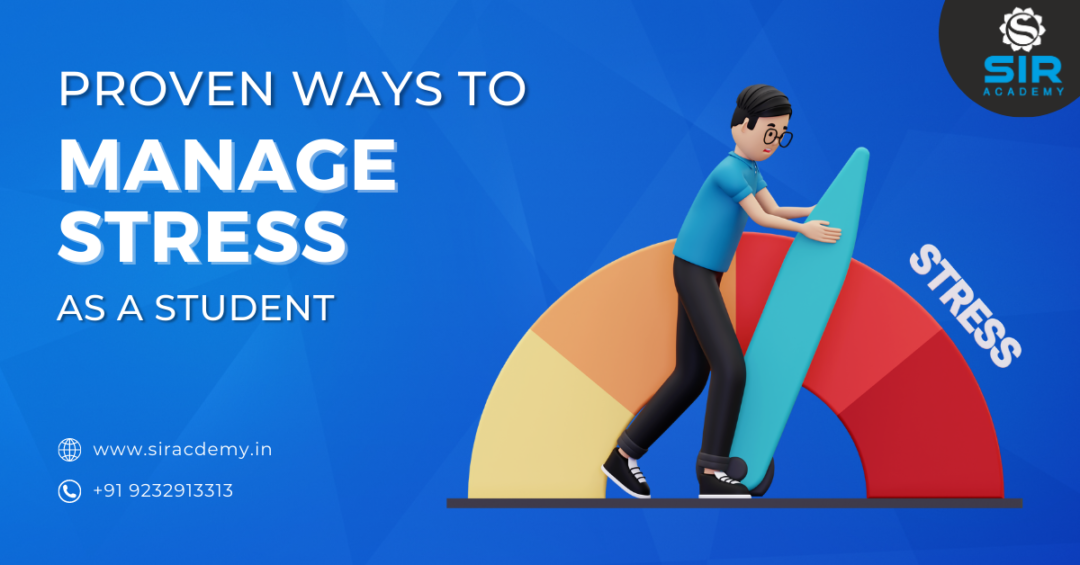Stress is a really complex concept that we can define in several ways. It is a part of our daily lives. Stress management refers to a variety of methods as well as psychotherapies to reduce stress levels. Efficient stress management can break the grip of stress on our lives by helping one another to deal with stress easily.
According to scientific research, there are three forms of stress such as:
- Acute stress: This sort of stress is short term and it is a very common type of stress. Waking up late, rushing to class or receiving a poor grade are some of the examples of acute stress.
- Acute Episodic Stress: Stress that occurs at regular intervals can be defined as an Episodic Stress. This type of stress occurs regularly. For example, migraines, excessive sweating in certain conditions, tension headaches, and so on.
- Chronic Acute Stress: Chronic acute stress is stress that lasts for an extended period. Students who are struggling academically in a major course may acquire chronic acute stress. This can result in weight gain, sleep deprivation, and anxiety.
Stress Symptoms
Stress affects not only the mind but also the body. To deal with stress, we need to understand the symptoms such as:
- Physical symptoms: Sweating, increased heart rate or blood pressure, vertigo, shortness of breath, muscle tension, headaches, and stomach aches.
- Emotional symptoms: hostility, irritability, and other mood changes; increased worrying, helplessness, and loneliness.
- Behavioral symptoms: Binge or reduced eating, drug or alcohol misuse, erratic sleep habits.
- Cognitive symptoms include memory loss, loss of concentration, negative outlook, and dissociation (i.e., disconnection from your thoughts, feelings, and identity).
The following are some of the methods for students to deal with stress:
Get enough sleep:
The first and foremost thing to remember under stress is to get quality sleep. “Enough” denotes neither too much nor too little. For the day, 7-8 hours of sleep is sufficient. Make it a habit to sleep and wake up early.
Exercise and meditation:
Physical exercise and 5 minutes of meditation are effective ways to overcome or manage stress. Exercise helps to release endorphins, which triggers a positive feeling in the body. Whereas, meditation helps you check on the thoughts that run through your mind.
Set achievable goals:
Keep the goals that can be achieved in a day, such as finishing a chapter or solving a sample paper without any help. Reward yourself once the goal is achieved to stay motivated.
Avoid Procrastination:
Most importantly, avoid the habit of Procrastinating. Students find themselves guilty of not completing the tasks on time. The best way is to make a to-do list for the day and simultaneously cross out the tasks for the day. Don’t compare yourself with others. Keep track of your own progress that results in your betterment. This will help you stay focused on your skills.
Talk it out:
Have a daily conversation with your family and friends about what upsets you. So, Speaking your thoughts aloud or writing them down can make a huge difference to how you feel in the long term. Every student should understand that exams are part of life, and giving your 100% is the way. They should know how to deal with the stress as well as cope with it positively.
If you find this article helpful, please share it with others. For more such blogs and counseling selling sessions, download our app “SIR ACADEMY“
Do you have any doubts?? Book our free counselling session today!
Happy Learning!
